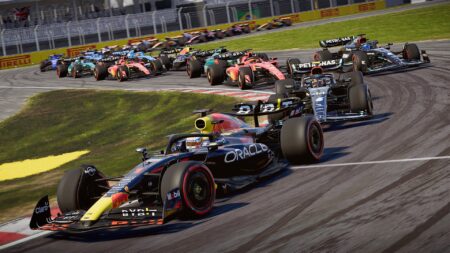
F1 23 review: racing rejuvenated or relapsed?
Our detailed review of the new F1 23 game including new features, new circuits and a brand new story mode
Mobile gaming requires similar skills to racing a car, and is the key to identifying talented drivers from around the world, says a leading esports figure.
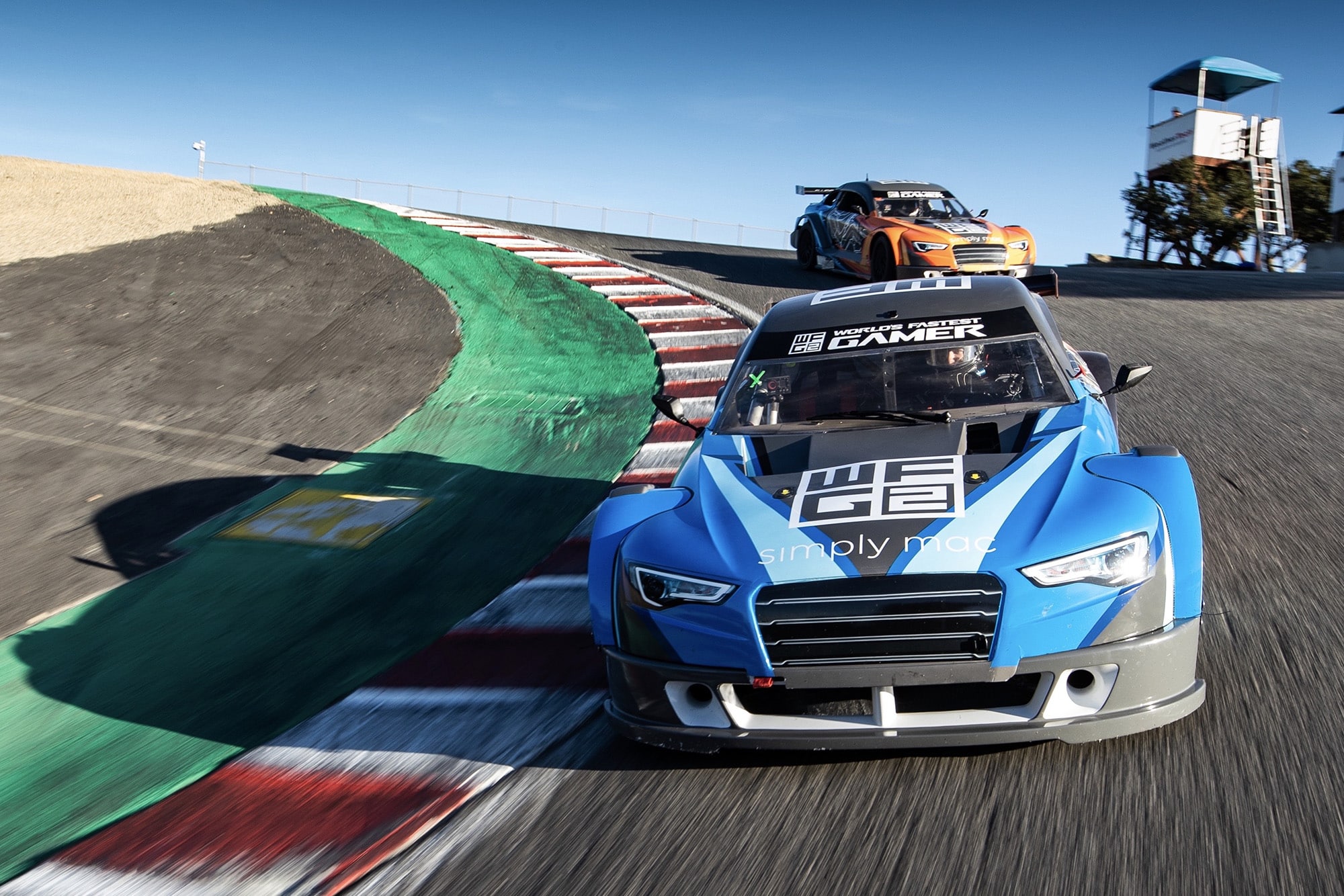
The next top racing driver could be discovered through mobile gaming rather than Formula Ford, says one of the leading figures in the esports industry.
The skills needed to succeed in mobile phone racing games are the same as those required of a fast driver, says Darren Cox, who founded the World’s Fastest Gamer competition
Mobile gaming is also seen as a way of recruiting talented drivers from around the world, who couldn’t dream of funding a season in single-seater racing.
Cox was speaking ahead of the final of World’s Fastest Gamer 2, which promises a $1m racing contract to the winner.
Contestants qualified in a series of gaming challenges, and have since been whittled down in track tests, which have included stock car and supercar driving in sunny California, at Laguna Seca and Willow Springs
The winner will be competing almost immediately — but in surroundings that are more familiar to novice racers: their first event is expected to be a chilly November Britcar meeting at Brands Hatch.
“The winner is likely to be racing three to four times before the end of the year,” said Cox, with the aim of entering the GT4 European Cup next year.
“Some of these guys have never sat in a racing car before but after ten laps, they are not far off what a good young amateur driver would be doing.”
“Around 80 per cent of the guys in the virtual world would bite your arm off to get into a racing car.”
Cox was involved in the first major gamer to racer competition when Jann Mardenborough won GT Academy in 2011. His racing career, backed by Gran Turismo and Nissan continues to this day, in the Japanese Super GT championship.
Mardenborough began racing in his bedroom, with a console, steering wheel and pedal set. But competitions are now opening to mobile gamers, whose touchscreen talents are seen as an indicator of real-world track skills.
Among the finalists in this year’s World’s Fastest Gamer 2, was Riley Gerster, who qualified on the Gear.Club mobile racing game.
“The hand-to-eye co-ordination, motor skills and problem-solving skills are transferrable to the track,” says Cox. “They also know how to brake, take a corner and accelerate on track. If you’ve ever been to a corporate track day, you’ll realise that’s not a skill that a large number of the general public have.”
Related content
Gerster won’t be crowned as this year’s World’s Fastest Gamer after being eliminated in the final eight, but his strong performance is seen as a way of discovering new talent that would never otherwise have a route into the costly world of racing.
“You just need to look at the F1 esports grid. There’s barely anybody that does not have a European passport,” says Cox.
“We need to get to a wider selection of countries that are now interested [through gaming], who maybe do not have a motor sport culture.
“Mobile gaming really opens up the boundaries.”
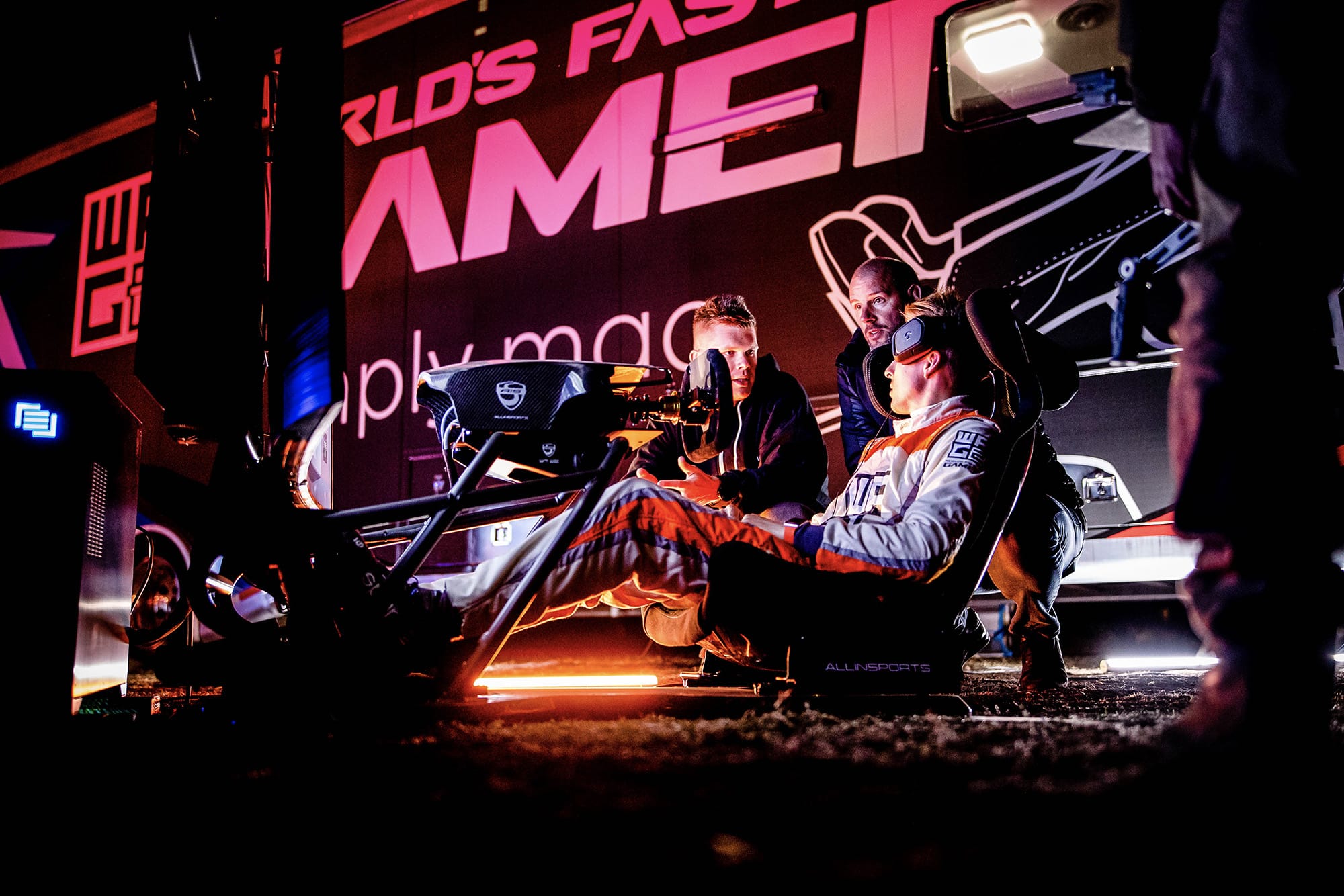
Top gamers can already build a successful and lucrative digital career, thanks to competitions, including Formula 1’s esports Series, as well as platforms such as Twitch, which pay popular gamers.
However, Cox said that the majority of them still saw traditional racing as the pinnacle of the sport.
“Max Verstappen is the ultimate gamer. When he’s not racing on track, he’s on his rig.”
“In the first season of the World’s Fastest Gamer, we gave the winner, Rudy van Buren, a contract to be McLaren’s simulator driver. His first question was when does he get to drive the real car?
“Around 80 per cent of the guys in the virtual world would bite your arm off to get into a racing car.”
Cox concedes that the current competition is unlikely to find a future F1 star because entry is only open to contestants aged 18 or over, by which time most F1 hopefuls are well-established racers.
However, he says that there are already gamers who have made their way to the top of the sport.
“Max Verstappen is the ultimate gamer,” he says. “When he’s not racing on track, he is on his [gaming] rig with [the games] rFactor or iRacing.
“The crossover has happened. The generation of Lando Norris and Max [who team up to compete in esport tournaments] are racing drivers and gamers.
“If Jim Clark was alive today, he would be on a simulator somewhere.”
Cox sees physical and virtual racing merging ever closer. Last year, Formula E launched a “Ghost Racing” mobile game that allowed gamers to race against the real-world cars in championship events, in real time.
“We will see a blurring between the lines of real and virtual worlds. Top drivers will be gamers, so there will not be any negativity, and a pre-eminent esports championship or two will rise and be as big, if not bigger, than the second tier of motor sport, behind F1.
“In ten years’ time, it will be bigger than Formula E, NASCAR or IndyCar.”

Our detailed review of the new F1 23 game including new features, new circuits and a brand new story mode
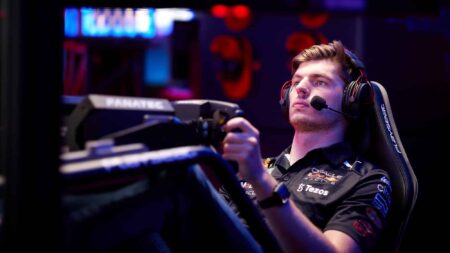
Max Verstappen quit the 2023 Virtual Le Mans 24 Hours and labelled it a "clown show" after connection issues, but many say that technical issues are simply part of sim racing
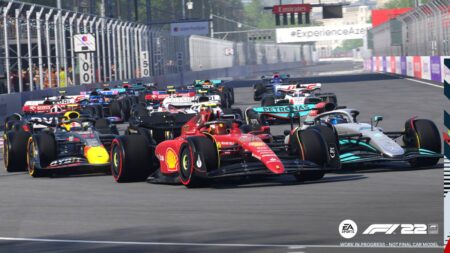
A new era of F1 cars, complete challenges in supercars and VR compatible are key features for this year's game and more
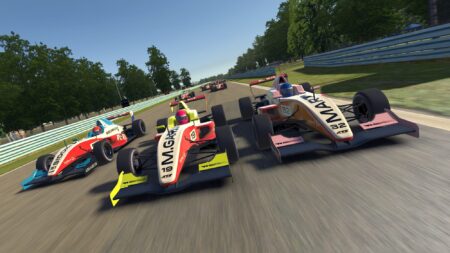
Esports has long been viewed as insignificant but 'old views' need to change according to some drivers